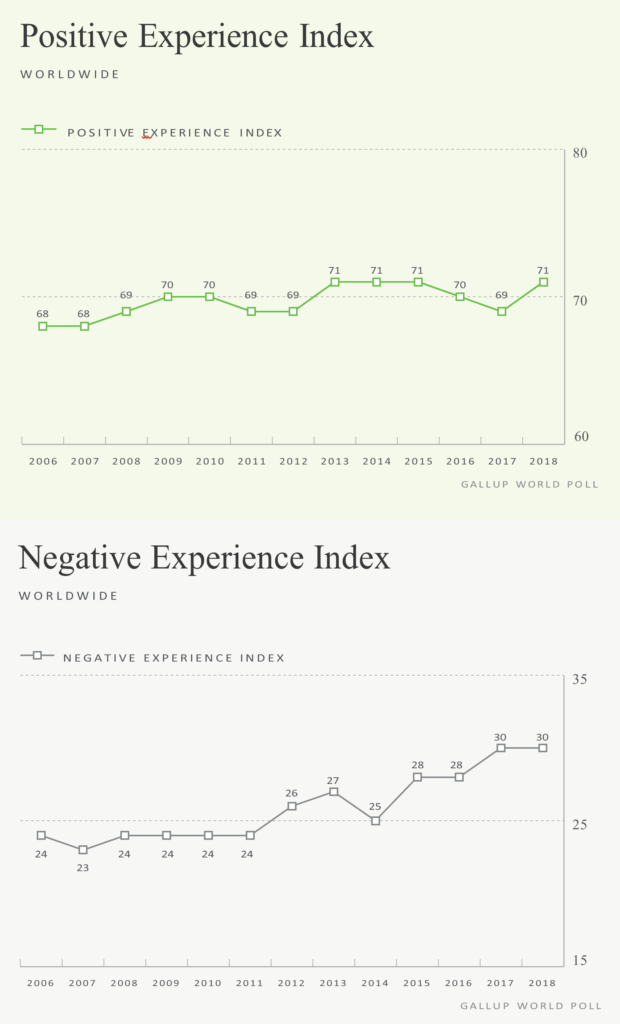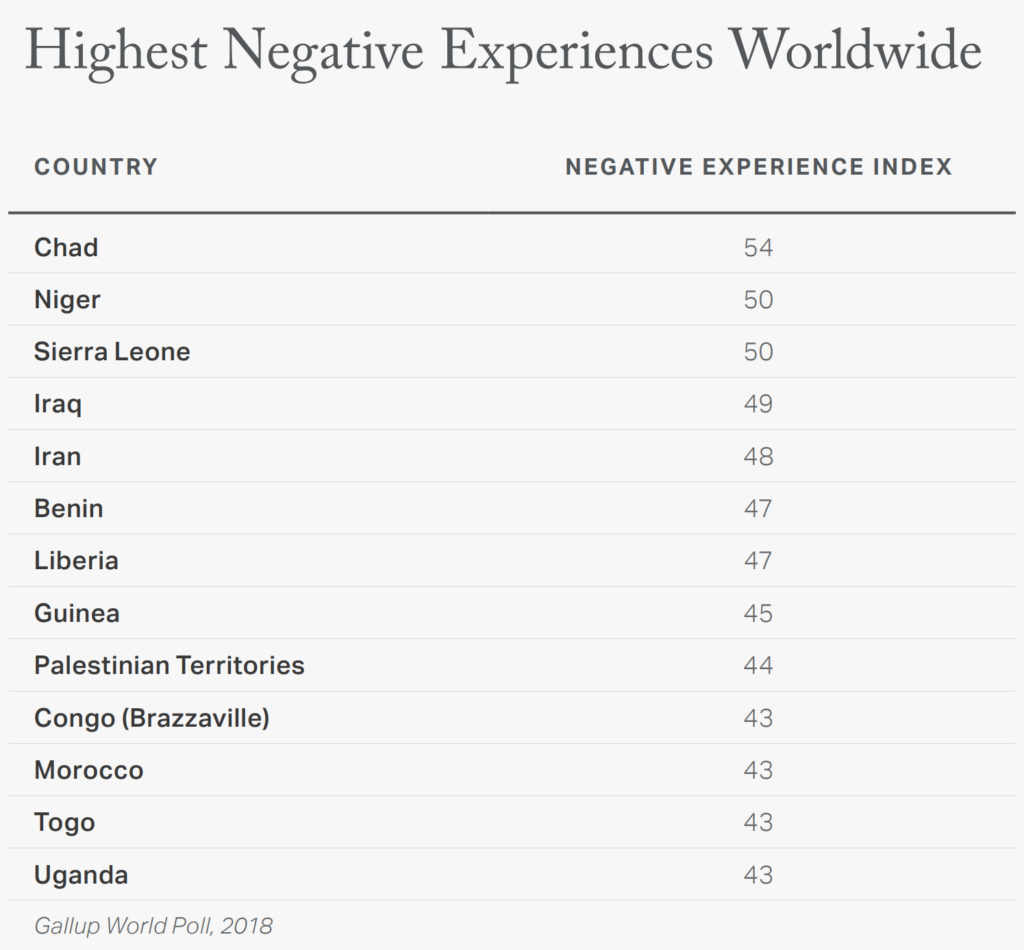Poll finds world negative experiences remained at record-high level in 2018 – Anger increased by two points, hitting a new high

18 April 2019 (Gallup) – Gallup’s Positive and Negative Experience Indexes measure life’s intangibles — feelings and emotions — that traditional economic indicators such as GDP were never intended to capture. Each index provides a real-time snapshot of people’s daily experiences, offering leaders insights into the health of their societies that they cannot gather from economic measures alone.
The 2019 Global Emotions Report presents the results from Gallup’s latest measurements of people’s positive and negative daily experiences based on more than 151,000 interviews with adults in more than 140 countries in 2018.
Positive Experience Index questions
- Did you feel well-rested yesterday?
- Were you treated with respect all day yesterday?
- Did you smile or laugh a lot yesterday?
- Did you learn or do something interesting yesterday?
- Did you experience the following feelings during a lot of the day yesterday? How about enjoyment?
The Positive Experience Index score is the mean of all valid affirmative responses to these items multiplied by 100. Country-level index scores range from zero to 100. Higher scores mean that positive emotions are more pervasive in a country. These scores strongly relate to people’s perceptions about their living standards, personal freedoms and the presence of social networks.
Negative Experience Index questions
- Did you experience the following feelings during a lot of the day yesterday? How about physical pain?
- Did you experience the following feelings during a lot of the day yesterday? How about worry?
- Did you experience the following feelings during a lot of the day yesterday? How about sadness?
- Did you experience the following feelings during a lot of the day yesterday? How about stress?
- Did you experience the following feelings during a lot of the day yesterday? How about anger?
The Negative Experience Index score is the mean of all valid affirmative responses to these items multiplied by 100. Country-level index scores range from zero to 100. The higher the score, the more pervasive negative emotions are in a country. People’s experiences with health problems and their ability to afford food are predictive of higher negative scores. […]
Globally, Negative Experience Index Remains at Record High in 2018
In 2018, Gallup asked adults in 142 countries if they had five different negative experiences on the day before the survey. More than one in three people said they experienced a lot of worry (39%) or stress (35%), and three in 10 experienced a lot of physical pain (31%). At least one in five experienced sadness (24%) or anger (22%).

While overall stress levels dropped two percentage points from the previous year, anger increased by two points — hitting a new high. Worry and sadness, which were already at record levels, each increased by one point from the previous year. Experiences of physical pain remained unchanged. Gallup compiles the “yes” responses from these five questions into a Negative Experience Index score for each country. The elevated percentages on most of the index items kept the score unchanged at a record high of 30. Scores worldwide ranged from a high of 54 in Chad to a low of 14 in Taiwan […]
Chadians Most Pain-Stricken, Sad Population in the World
The Negative Experience Index score in Chad is largely attributable to the high percentages of people who experienced each of these negative emotions or experiences. More than six in 10 Chadians said they experienced physical pain (66%) and felt worried (61%) during much of the previous day. Majorities also said they felt sadness (54%) and stress (51%).
Chad was one of 10 countries worldwide where the majority of the population was in a lot of physical pain the previous day. Chadians also were more likely than any other population on the planet to report feeling pain and sadness the previous day.
While Chadians were nearly twice as likely as the global average to say they felt angry the previous day — a number of other populations were angrier. More than four in 10 residents in Morocco (41%), Palestinian Territories (43%), Iran (43%), Iraq (44%) and Armenia (45%) said they were angry a lot the previous day.
There were also populations that were just as stressed, if not more. In fact, U.S. adults (55%) were slightly more stressed than Chadians (51%). Greeks, for the third consecutive year, were the most stressed population in the world, with 59% saying they experienced a lot of stress the day before the survey. [more]